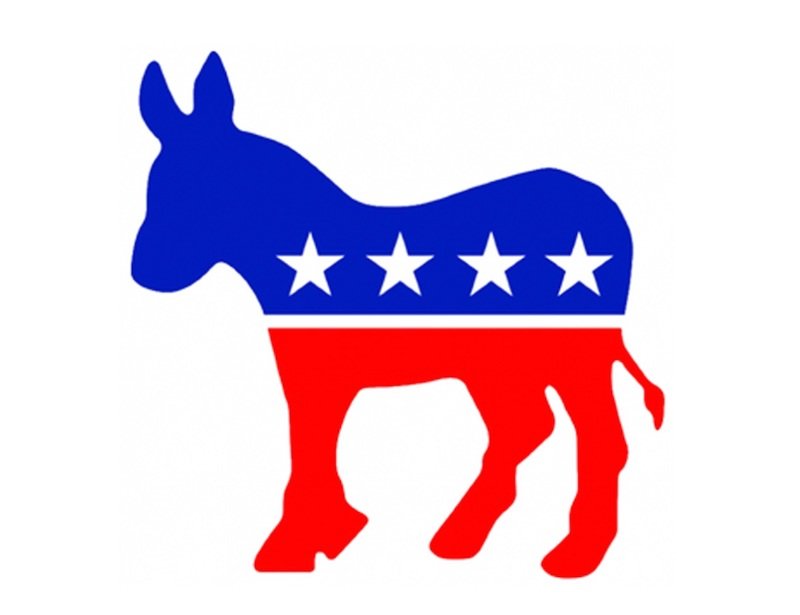In 2018, an electoral tsunami propelled a takeover of the House of Representatives by Speaker Nancy Pelosi (D-CA) and the Democratic Party.
Heavy-hitting Democratic party donors were stirred into a frenzy over accusations of Russian collusion that would eventually be dismissed by the Mueller investigation. Pelosi was able to raise a colossal amount of money, leading Democrats into picking up 41 seats on the way to regaining the House majority for the first time in eight years. There is no question that this was a formidable and impressive effort. What is more impressive is how it was accomplished. Despite all the partisan anti-Trump rhetoric at Hollywood fundraisers, Pelosi recruited and supported moderate candidates skillfully threading the needle when talking about the President.


While much of the celebrity and media attention was garnered by progressive freshmen members like U.S. Rep. Alexandria Ocasio-Cortez (D-NY), it was the moderate Democratic candidates that did most of the heavy lifting in regaining the majority, by winning swing districts. This is what U.S. Rep. Anthony Brindisi did in NY-22, and it resulted in even pulling off some shocking victories in deep red Trump districts like U.S. Rep. Kendra Horn was able to do in OK-5.
Candidates like Brindisi and Horn didn’t tout far left tropes like massive tax hikes and focused on kitchen table issues such as lowering healthcare costs and social security. Democrats who won the swing districts or scored the massive upsets didn’t run against Donald Trump, they ran far and away from the so-called progressive agenda espoused by Democrats from overwhelmingly liberal districts. Indeed, many thought the results of the 2018 elections were poised to usher in a more moderate and pragmatic Democratic Party.
Whatever some of us may have thought would happen with the House Democrats agenda in 2019, it soon became obvious that moderates in the Democratic Party were a prop to be seen and not heard. Instead of having a national conversation about fixing health care, or helping the middle class, the themes dominating the Democratic Party in the House quickly became the “Green New Deal” and a verifiable infatuation with impeaching President Trump. If a House Democrat dared try to change the conversation to more pressing and mainstream issues, they were swiftly threatened with the prospect of a well-funded primary opponent.
In some cases, Democrats trying to transition the Democratic party back to middle class issues received more than threats. For instance, U.S. Rep. Henry Cueller (D-TX), one of the earliest supporters of Hillary Clinton’s presidential campaign, a moderate who voted for Obamacare and the Clean Energy Act, is facing a vigorous primary challenger backed by a group of liberal House Democrats including Rep. Ayanna Pressley (D-MA).
U.S. Rep. William Lacy Clay (D-MO), a member of the Congressional Black Caucus and the Congressional Progressive Caucus, is also receiving a well- organized primary challenge backed by progressive freshmen House Democrats. U.S. Rep. Juan Vargas (D-CA) from San Diego is facing a similar challenge. U.S. Rep. Jim Costa a Democrat from Fresno, California also came into the crosshairs of freshmen progressive Democrats. U.S. Rep. Daniel Lipinski, a Democrat from Illinois is facing a stiff primary challenge and his defeat could spell the end of the so called “blue-dog” Democrats in the House. These are just a few examples of moderate House Democrats coming under enormous pressure to toe the line on supporting ideas outside the mainstream priorities of their constituents.
Vulnerable moderate freshmen Democratic incumbents like U.S. Reps Joe Cunningham (D-SC), Cindy Axne (D-IA) and Lucy McBath (D-GA) are going to be hard pressed to explain why the Democrats have approved 56 subpoenas and passed only 46 laws, nine of those laws involving ceremonial tasks such as renaming post offices.
In comparison, President Clinton signed 150 bills into law while a Republican congressional majority carried out their impeachment effort. Nonetheless what should be even more disturbing to Democrats facing challenging races is the reluctance of the Democratic House Leadership to pass measures enjoying widespread bi-partisan consensus such as ratifying the highly popular USMCA trade treaty. Democrats haven’t taken real action on lowering prescription drug costs either, another issue popular with voters of both parties. Instead of having a robust and vigorous dialogue on issues like education and social security, all we hear about is impeachment.
One recent survey shows only 25% of Americans approving the job Congress is doing. If anyone is insulated from these sentiments, it is the longer serving members of Congress but certainly not freshmen Democrats in moderate districts. The Democrats unexpected shift in favor of radical progressive ideals doesn’t imperil veteran Democratic lawmakers nearly as much as it endangers the future of dozens of moderate freshmen Democrats who won their seats by focusing on traditional middle-class issues like education and healthcare. These kinds of Democrats are not nearly as well-known as long-time Democratic incumbents, nor do they have the traditional advantages enjoyed by long serving Democrat House members. Moderate freshmen Democrats won mostly in swing districts and are susceptible to the ire of moderate swing voters who sent them to Washington for a variety of reasons none of which included promoting crippling energy taxes or a monolithic focus on impeaching President Trump.
Undoubtedly however, many of these freshmen Democrats are impressed by the allure and approval of powerful and nationally known Democrats. It’s likely that there is even a sense of camaraderie, a higher sense of purpose if you will, that by risking their electoral prospects they can secure the favor of their party leadership while having “other moderates” lose other seats as they’re able to hold onto their own. Nevertheless, it doesn’t take much effort in finding the names of so many “future stars” (from both parties) who succumbed to party pressure and ignored the will of their constituents only to find themselves wondering what went wrong after losing re-election.
Impeachment may or may not hurt President Trump’s re-election effort. What dozens of freshmen House Democrats must decide is whether this proposition is important enough or even relevant enough for them to hurt their chances of holding onto their seats. These days we are hearing a lot of back and forth accusations regarding impeachment and an attempted “coup” against the President.
Perhaps it’s time that the moderate Democrats in the House pull off their own version of a “coup”. Moderate Democrats must force their House Leadership to get back to working on issues favored by the middle class and drastically scale back their often unproductive and quixotic projects. They need to insist that the Democrats immediately take up healthcare costs, education, passing the USMCA, working on an infrastructure deal, and other matters of immediate concern to middle class Americans.
If moderate freshmen Democrats must run for re-election under this perpetually hyper-divisive climate dominating Washington DC, many of them will no longer have to worry about not being heard in the Democratic Party. They won’t be seen either after 2020.










